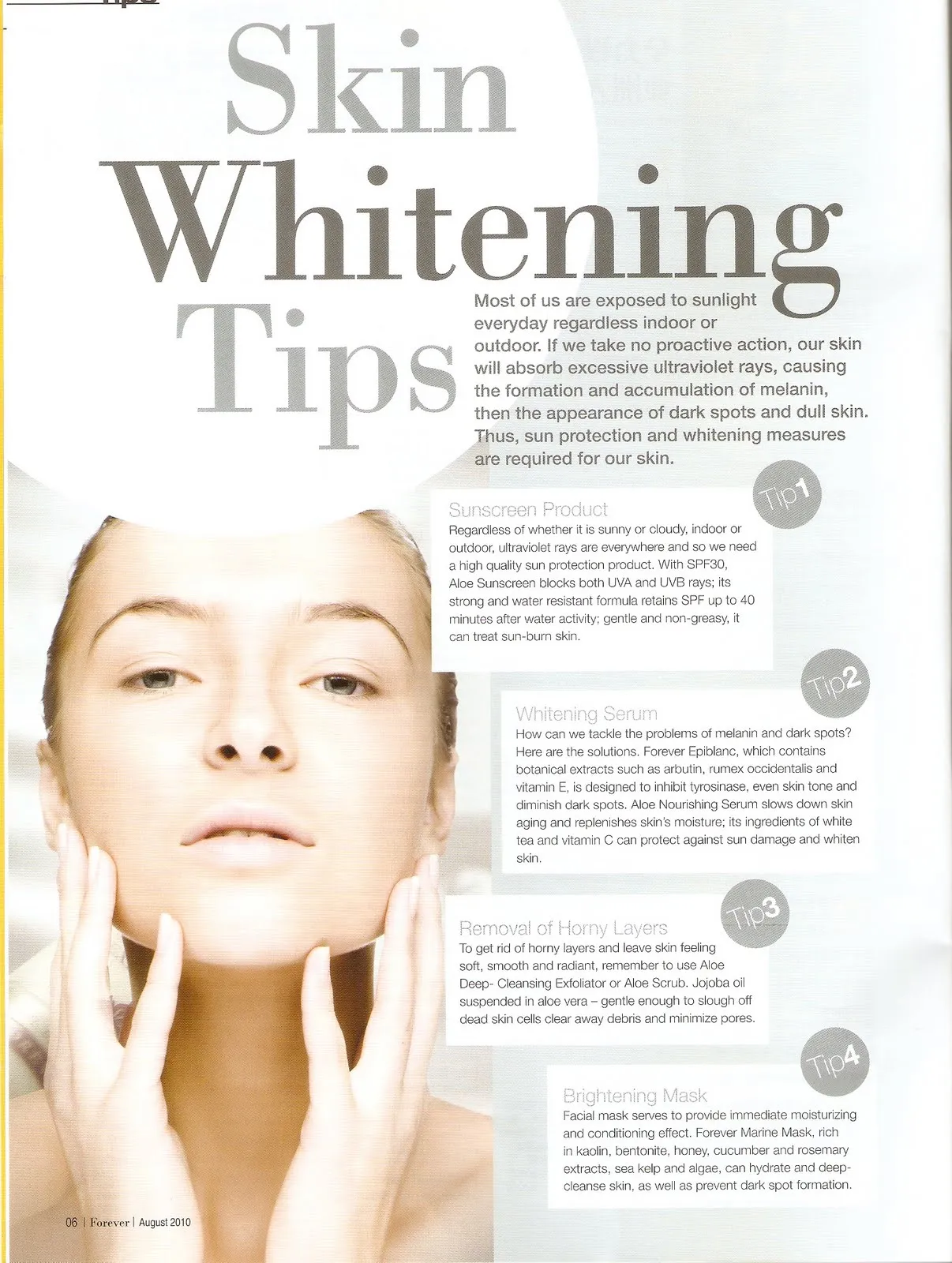Understanding Skin Whitening
Skin whitening, also known as skin lightening or skin bleaching, is the practice of using substances, mixtures, or treatments to reduce the melanin pigment in the skin to give it a lighter appearance. While the desire for lighter skin tones is prevalent in many cultures, it’s essential to approach this topic with a balanced understanding. Many people seek to reduce hyperpigmentation, even out skin tone, or address specific skin concerns like age spots or acne scars. This can be achieved through various methods, from over-the-counter products to professional treatments. However, it’s important to prioritize skin health and use methods that are safe and effective, and also understanding the reasons behind the need for such procedures.
What Causes Skin Discoloration
Skin discoloration can be caused by a variety of factors. Understanding these causes is crucial for choosing the right treatments. These factors range from environmental influences to internal bodily processes, and they all interact with the skin in various ways. The primary culprit is often melanin, the pigment responsible for skin color. When melanin production is disrupted or overstimulated, it can lead to uneven skin tone and dark spots. The most common causes are highlighted below.
Sun Exposure

Prolonged exposure to the sun’s ultraviolet (UV) rays is a major contributor to skin discoloration. UV radiation stimulates melanocytes, the cells that produce melanin, leading to tanning and, in some cases, sunspots (also known as age spots or liver spots). Regular sun exposure without adequate protection can accelerate the aging process and worsen existing pigmentation issues. This is why sun protection is an essential element of any effective skin whitening or skin-brightening routine. The intensity of the sun’s rays and the length of exposure directly correlate with the amount of damage and pigment change that occurs in the skin. Therefore, minimizing sun exposure and using protective measures are key to maintaining a healthy, even skin tone.
Hormonal Changes
Hormonal fluctuations, particularly those occurring during pregnancy (melasma), can also trigger increased melanin production. Melasma, also known as the ‘mask of pregnancy’, often appears as dark patches on the face. Birth control pills and hormone replacement therapy can also contribute to hormonal imbalances that affect skin pigmentation. These changes can cause uneven skin tones. Managing hormonal imbalances through medical consultation and understanding the effects of different medications are important steps in addressing this type of skin discoloration. In many cases, the skin pigmentation related to hormonal changes may fade or disappear after the hormonal balance returns to normal, although treatment may still be necessary to speed up the process.
Inflammation and Skin Conditions
Inflammation from acne, eczema, or other skin conditions can lead to post-inflammatory hyperpigmentation (PIH). This occurs when the skin produces excess melanin in response to inflammation or injury. PIH can appear as dark spots or patches in areas where the skin has been inflamed or irritated. Other skin conditions such as psoriasis and certain types of dermatitis can also lead to uneven skin tone. Effective management of these underlying skin conditions is crucial for preventing and treating skin discoloration. Anti-inflammatory skincare routines, and sometimes professional treatments, are often necessary to control these conditions and minimize pigment changes. Addressing the root causes is key to achieving a clearer, more even complexion.
Natural Ingredients for Skin Whitening

Many natural ingredients possess properties that can help lighten the skin and improve its overall appearance. These ingredients often work by inhibiting melanin production or by gently exfoliating the skin to remove darkened cells. It’s important to remember that natural treatments typically work more gradually than professional procedures, but they are often gentler and can be used as part of a long-term skincare strategy. These ingredients are safe for most people and are easily accessible.
Lemon Juice for Skin Whitening
Lemon juice is a natural bleaching agent due to its high citric acid content, a type of alpha-hydroxy acid (AHA). AHAs help exfoliate the skin and can reduce the appearance of dark spots and uneven pigmentation. The acidic nature of lemon juice can also help to lighten the skin, making it a popular ingredient in homemade skin whitening remedies. However, lemon juice can be irritating to some skin types and may increase sensitivity to the sun. It’s always best to dilute lemon juice with water and perform a patch test before applying it to the entire face. Using lemon juice should be done in moderation, and always followed by the use of sunscreen.
Turmeric for Skin Whitening
Turmeric contains curcumin, an antioxidant and anti-inflammatory compound that can help reduce melanin production and brighten the skin. Turmeric is known for its skin-lightening properties and its ability to reduce inflammation, making it an effective ingredient in many skincare products. It can help in reducing dark spots and improving overall skin tone. Using turmeric in homemade face masks or applying it to the skin can help to achieve a radiant and even complexion. Its anti-inflammatory properties can also help to soothe the skin. Ensure that you use turmeric that is of a high grade, and always do a patch test before applying it to the face.
Honey for Skin Whitening

Honey is a natural humectant, meaning it helps to retain moisture in the skin. It also has antibacterial and antioxidant properties, making it beneficial for overall skin health. In terms of skin whitening, honey can help to lighten the skin and reduce the appearance of scars and dark spots. Honey’s gentle nature makes it suitable for most skin types. Honey can be applied directly to the skin or mixed with other ingredients, and it can help to improve the skin’s texture, leaving it soft and supple. Combining honey with other ingredients like lemon juice or turmeric can enhance its skin-whitening effects.
Aloe Vera for Skin Whitening
Aloe vera is renowned for its soothing and healing properties. It contains aloin, a natural depigmenting compound that can help to lighten skin and reduce dark spots. The use of aloe vera can also help to calm irritated skin, making it a great choice for sensitive skin types. Its hydrating properties also contribute to healthier, more radiant skin. Aloe vera can be used in its pure form, directly from the plant, or as a key ingredient in many skincare products. Regular application can help improve skin tone and texture, giving a brighter, more even complexion. Combining aloe vera with other whitening ingredients can enhance its effects.
Homemade Skin Whitening Masks
Creating homemade skin whitening masks can be a safe and effective way to achieve a brighter complexion. These masks often combine natural ingredients with skin-lightening properties. When preparing homemade masks, it’s important to use fresh, high-quality ingredients and perform a patch test before applying the mask to the entire face. This helps to ensure that the ingredients are compatible with your skin. Homemade masks can be customized to address specific skin concerns and can be easily integrated into your regular skincare routine. These are some great masks you can consider.
Lemon and Honey Mask
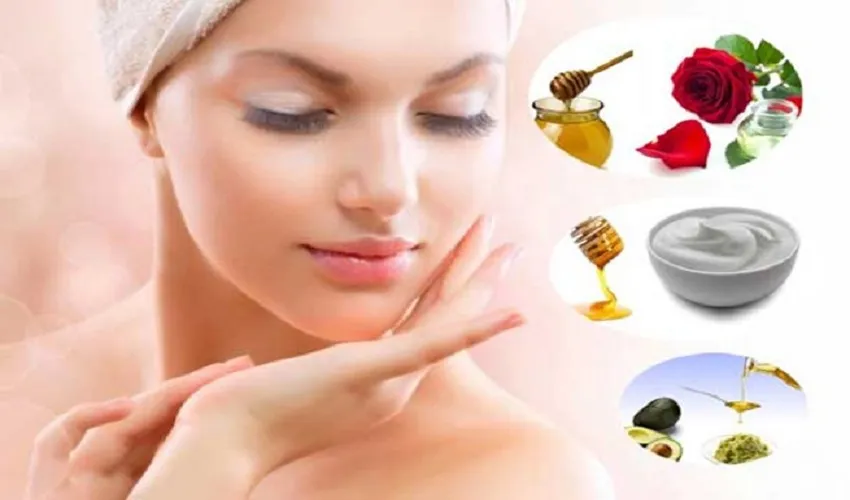
The lemon and honey mask is a simple yet effective combination for skin whitening. Lemon juice, with its natural bleaching properties, helps to lighten the skin and reduce dark spots. Honey, with its moisturizing and antibacterial properties, soothes and hydrates the skin. To make this mask, mix one tablespoon of fresh lemon juice with one tablespoon of honey. Apply the mixture to clean skin and leave it on for 15-20 minutes before rinsing with lukewarm water. Regular use can help to even out skin tone and give a brighter complexion. Always perform a patch test before applying this mask, as lemon juice can be irritating to sensitive skin.
Turmeric and Yogurt Mask
The turmeric and yogurt mask is another effective choice. Turmeric helps reduce inflammation and lighten the skin, while yogurt, which contains lactic acid, exfoliates the skin gently. This combination can help to reduce dark spots and improve overall skin tone. To create this mask, mix one teaspoon of turmeric powder with two tablespoons of plain yogurt. Apply the mixture to the face, and leave it on for about 15-20 minutes before rinsing with cool water. Regular use can help to brighten the skin, reduce blemishes, and create a more even complexion. Always use high-quality, pure turmeric powder to maximize the results.
Oatmeal and Milk Mask
The oatmeal and milk mask is a gentle option suitable for sensitive skin. Oatmeal exfoliates the skin gently, while milk, containing lactic acid, helps brighten the skin. This mask also soothes and moisturizes the skin, reducing redness and irritation. To make this mask, mix one tablespoon of ground oatmeal with two tablespoons of milk (cow’s milk or plant-based). Apply the mixture to the face and leave it on for 15-20 minutes before rinsing with lukewarm water. Regular use can provide gentle exfoliation, improve skin tone, and leave the skin feeling soft and refreshed. The milk’s lactic acid aids in skin lightening.
Essential Skincare Routine for Whitening
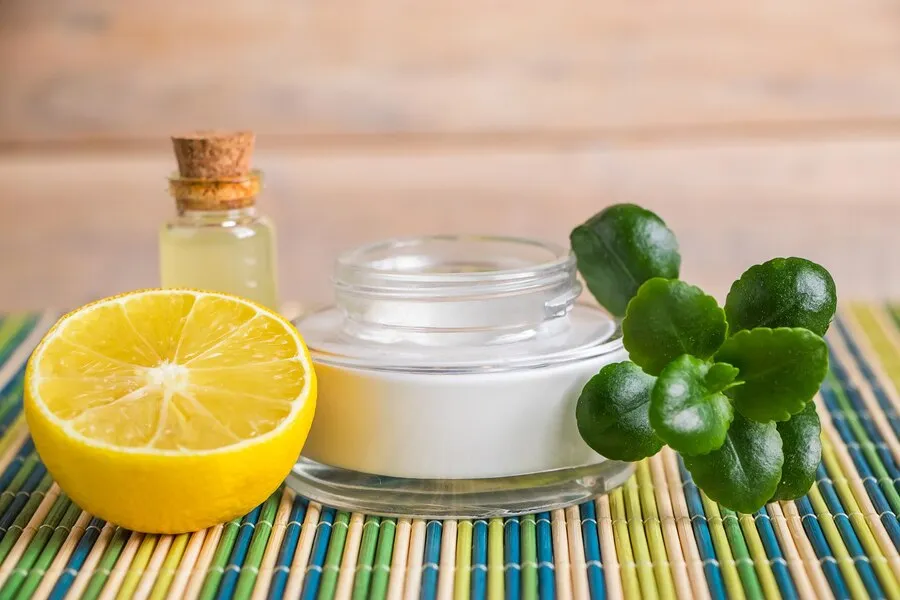
Alongside homemade masks and natural ingredients, a comprehensive skincare routine is essential for achieving and maintaining a brighter complexion. A well-structured routine ensures that your skin is healthy, hydrated, and protected from environmental stressors. Implementing a daily skincare routine that addresses your skin’s specific needs can enhance the effectiveness of skin whitening treatments and promote overall skin health. The following steps are vital for any skincare routine.
Cleansing and Exfoliation
Cleansing removes impurities and prepares the skin for other treatments. Exfoliation removes dead skin cells, revealing brighter, smoother skin. Look for gentle cleansers suitable for your skin type, and exfoliate one to three times per week. Using a gentle scrub or chemical exfoliants containing AHAs or BHAs can help to remove dead skin cells and improve skin tone. Regular cleansing and exfoliation are foundational to healthy skin. Avoid harsh scrubs that can irritate your skin. Always moisturize after exfoliating to prevent dryness.
Moisturizing and Hydration
Moisturizing is essential for maintaining skin health and hydration. Hydrated skin is more resilient and looks brighter. Use a moisturizer that suits your skin type and apply it daily, preferably after cleansing and exfoliation. Drinking plenty of water helps to hydrate the skin from within, supporting its natural functions. Adequate hydration is crucial for skin health. Choose products with ingredients like hyaluronic acid to help retain moisture, and apply moisturizers liberally to help hydrate the skin.
Sun Protection
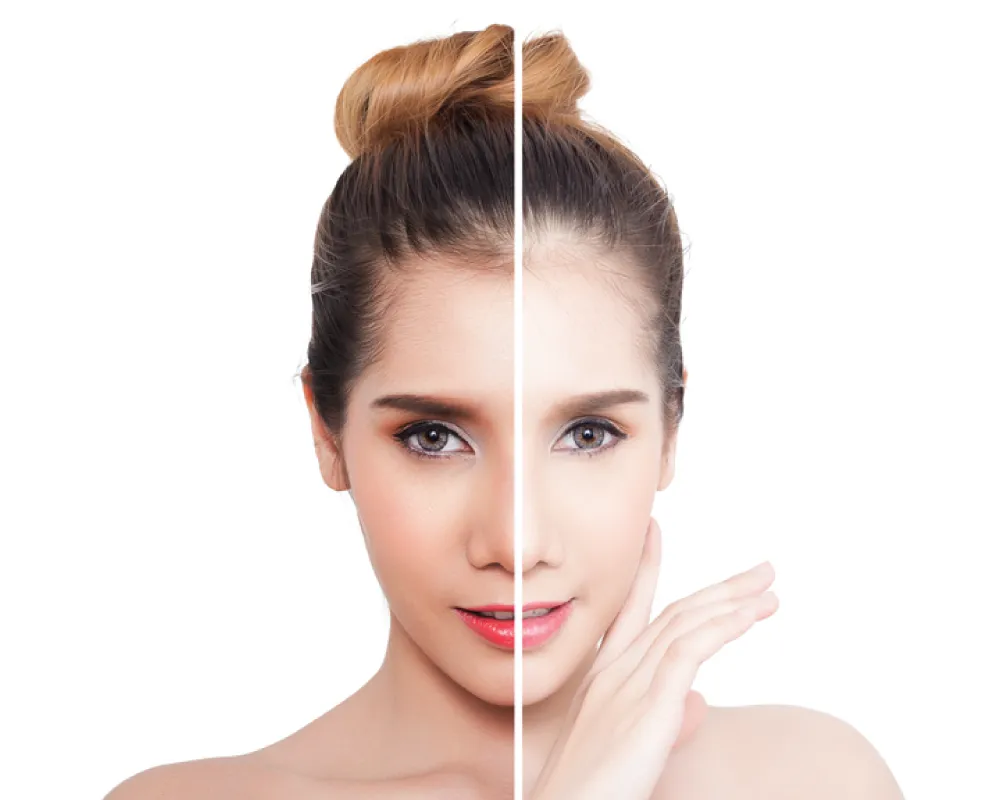
Sun protection is non-negotiable for skin whitening. UV rays can worsen hyperpigmentation and undermine the effects of skin-lightening treatments. Apply a broad-spectrum sunscreen with an SPF of 30 or higher every day, even on cloudy days. Reapply sunscreen every two hours, especially when outdoors. Sun protection prevents further darkening of the skin and protects it from sun damage. Using sunscreen consistently will help to preserve results and maintain a brighter complexion. Choose sunscreens that are appropriate for your skin type. Apply it generously to all exposed skin.
Lifestyle Factors That Affect Skin Whitening
Various lifestyle factors can significantly impact the effectiveness of skin whitening treatments and the overall health of your skin. Making healthy choices can enhance your efforts to achieve a brighter complexion. These factors range from your diet to how you manage stress. Here are some key lifestyle elements to keep in mind.
Diet and Nutrition
A balanced diet rich in antioxidants, vitamins, and minerals supports healthy skin. Foods like fruits, vegetables, and lean proteins can promote skin health and radiance. Antioxidants, found in many fruits and vegetables, help protect the skin from damage. Include foods rich in vitamin C, which is essential for collagen production and skin brightening. Eat a diet that supports skin health from the inside out. Avoid excessive sugar and processed foods, which can contribute to inflammation and skin problems.
Hydration
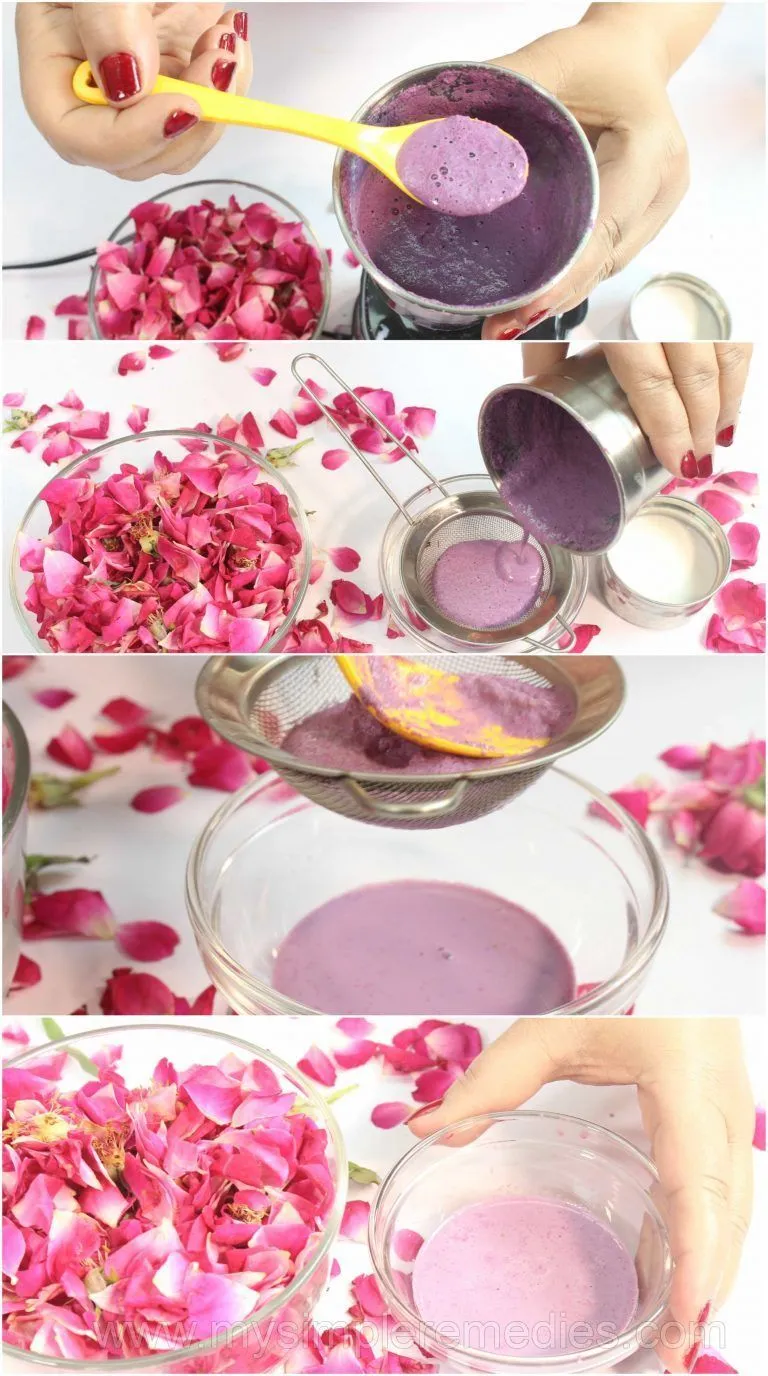
Staying adequately hydrated is crucial for skin health. Water helps to flush out toxins and keeps the skin moisturized, supporting its natural functions. Drink at least eight glasses of water per day, and increase your intake if you are active or live in a hot climate. Hydrated skin looks plumper, more radiant, and functions more effectively. Dehydrated skin can appear dull and can accentuate the appearance of fine lines and wrinkles. Proper hydration is essential for a bright complexion.
Stress Management
Chronic stress can worsen skin conditions and affect skin tone. Finding healthy ways to manage stress, such as meditation, yoga, or spending time in nature, can benefit your skin. Stress can trigger inflammation and disrupt the skin’s natural processes. Practicing relaxation techniques, getting enough sleep, and engaging in activities that you enjoy can help to reduce stress levels. Managing stress is essential for overall well-being and can positively impact your skin health and appearance.
Potential Risks and Considerations
While skin whitening can be a popular practice, it’s important to be aware of the potential risks and to approach it with caution. The use of certain ingredients and procedures can lead to adverse effects, particularly if not used correctly or under professional guidance. Knowing the risks will help you make informed decisions and prioritize your skin health.
Skin Sensitivity
Some ingredients used in skin whitening products can cause skin sensitivity, irritation, and inflammation. Always perform a patch test before applying new products or treatments to a larger area of your skin. Watch for signs of redness, itching, or burning, and stop use if any adverse reactions occur. If you have sensitive skin, choose gentle ingredients and avoid harsh chemicals. Over-exfoliating and using products that contain irritating ingredients can damage your skin.
Consulting a Dermatologist
Consulting a dermatologist is crucial before starting any skin whitening treatment. A dermatologist can assess your skin type, identify the underlying causes of discoloration, and recommend safe and effective treatments. They can provide professional advice and monitor your skin’s response to the treatments. If you have existing skin conditions, such as eczema or acne, a dermatologist can help manage these conditions while also addressing your skin whitening goals. Their expertise will ensure that you achieve the best possible results while minimizing potential risks. They can provide the best course of action to take to avoid damaging the skin and can suggest products that will help improve the skin.
In conclusion, achieving skin whitening naturally involves a multifaceted approach that combines understanding the causes of skin discoloration, utilizing safe and effective natural ingredients, establishing a comprehensive skincare routine, and adopting healthy lifestyle habits. While homemade remedies can be beneficial, it’s crucial to approach them with caution and to consult with a dermatologist for personalized guidance and to ensure the safety and effectiveness of your skin whitening efforts. By prioritizing your skin’s health and well-being, you can achieve a brighter, more radiant complexion in a safe and sustainable manner.
